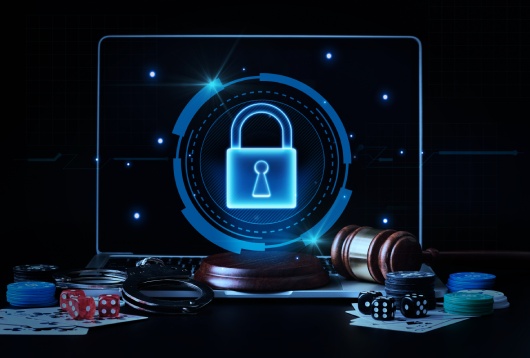-
In the dynamic world of blockchain game development, prioritizing legal compliance is not just a necessity but a strategic move. Overlooking regulations can lead to significant setbacks – hefty fines, legal disputes, or even game shutdowns. However, a proactive legal approach protects your project and enhances its value. By adhering to legal requirements, you avoid costly pitfalls, cultivate trust with players and investors, and establish a solid foundation for your game's long-term success. Consider it an investment in your project's future, allowing you to focus on development and innovation confidently.
Read Also | DAOs in Gaming: A New Governance Model
Key Legal Concerns for Blockchain Game Developers
Cryptocurrency Regulations
Navigating the complex landscape of cryptocurrency regulations is paramount for blockchain game developers. Different jurisdictions have varying rules regarding the use of digital currencies. Ensuring your game complies with these regulations helps avoid penalties and builds a trustworthy platform for players and investors.
Anti-Money Laundering (AML) Compliance
AML compliance is another critical aspect. Implementing robust AML protocols can help prevent your platform from being used for illegal activities. This includes monitoring transactions and verifying user identities to detect and report suspicious activities, thereby safeguarding your game's integrity.
Intellectual Property Protection
Protecting intellectual property (IP) is vital in the gaming industry. Blockchain game developers must secure their assets, including game code, characters, and storylines. Proper IP protection helps prevent unauthorized use and infringement, ensuring that your creative efforts are legally safeguarded.
Data Privacy Regulations
Adhering to data privacy regulations, such as the General Data Protection Regulation (GDPR) in Europe, is essential. Ensuring that your game collects, stores, and processes user data in compliance with these regulations protects you from legal issues and builds user trust.
Tax Regulations
Understanding and complying with tax regulations is crucial. Different jurisdictions have specific tax laws related to cryptocurrencies and virtual assets. Ensuring accurate tax reporting and compliance can prevent legal complications and financial penalties.
Legal Status of Virtual Assets
The legal status of virtual assets can vary widely. Some jurisdictions may classify them as securities, commodities, or currencies. Developers must be aware of these classifications to ensure their game's virtual assets are legally compliant and properly categorized.
Regulatory Uncertainty
The day-to-day or regulatory environment for blockchain and cryptocurrencies is still evolving. Staying informed about changes and updates in regulations is essential for developers to adapt and ensure ongoing compliance.
Dispute Resolution Systems
Establishing effective dispute resolution systems is crucial for maintaining a fair and trustworthy gaming environment. Clear mechanisms for resolving player disputes and addressing grievances can enhance user satisfaction and protect your game's reputation.
Also, Read | GameFi and Blockchain: The Future of Online Gaming
Top Legal Tips for Blockchain Game Development
Consult Legal Experts
Engage with lawyers specializing in blockchain and gaming law to navigate the complex legal landscape.
Stay Informed
Regularly update your knowledge of the latest regulations and legal developments in the blockchain gaming space.
Implement Compliance Measures
Develop and enforce comprehensive compliance policies for AML, data privacy, and IP protection.
Educate Your Team
Ensure that your development team understands the legal requirements and their importance in the development process.
Maintain Transparency
Communicate and establish your legal and compliance policies to players and investors to build trust.
Future of Web3 Law
Balancing innovation and compliance in Web3 gaming requires collaboration between developers, users, regulators, and legal experts. Crafting thoughtful regulations, developing effective self-governance models, leveraging technology like smart contracts, and providing clear legal guidance can help achieve this balance. By working together, the Web3 community can create a legal framework that supports innovation while protecting all stakeholders.
Explore | Redefining The Gaming Industry with a Play-to-Own Model
Conclusion
Legal compliance in blockchain gaming is essential as a protective measure and a strategic benefit. Addressing legal issues proactively helps developers safeguard their projects, establish user trust, and ensure long-term success. In this rapidly evolving industry, staying compliant shields developers from legal issues and creates a trustworthy environment for players and investors. Integrating legal considerations into the development process makes projects more resilient and sustainable amidst regulatory changes. This approach minimizes risks and establishes a strong, credible gaming ecosystem.
Ensure your blockchain game's success with Oodles Blockchain. Our experts help you navigate legal complexities, ensure compliance, and build trust. Contact our seasoned blockchain developers today for comprehensive support in blockchain gaming development.

Our Offices
INDIA
Emaar Digital Greens, Sector 61,
Gurugram, Haryana
122011.
Welldone Tech Park,
Sector 48, Sohna road,
Gurugram, Haryana
122018.















